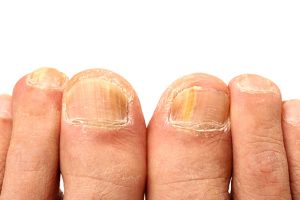 Ringworm is a highly contagious fungal infection, but if you’ve ever wondered – how long is ringworm contagious– then read on. Ringworm gets its name from causing a circular rash – like a ring – which becomes red and itchy. Anyone can contract ringworm. The fungus that causes it can live on the skin, bedding, towels, and clothing.
Ringworm is a highly contagious fungal infection, but if you’ve ever wondered – how long is ringworm contagious– then read on. Ringworm gets its name from causing a circular rash – like a ring – which becomes red and itchy. Anyone can contract ringworm. The fungus that causes it can live on the skin, bedding, towels, and clothing.
Ringworm can go by many names depending on its location on the body. For example, ringworm of the toes is athlete’s foot. Other terms for ringworm are tinea and dermatophytosis.
Advertisement
Ringworm is transferred from person to person through direct contact, but it can also be passed on through pets and even objects! Ringworm is so contagious that it doesn’t even require direct contact to be passed on. It is difficult to contain and it can live on for quite some time in public areas like locker rooms and swimming pools, as well as personal hygiene objects like brushes and combs.
How long is ringworm contagious?
Ringworm remains contagious for as long as it goes untreated. If treatment begins at the first spotting of symptoms, you won’t be contagious within 24 to 48 hours. If ringworm goes untreated, then it could take several months to clear up on its own. Still, no treatment means it’s contagious, so others around you are very likely to contract the infection.
Even after the symptoms have subsided, the treatment should continue on for two to four weeks to ensure the fungus is completely removed.
How to tell when ringworm is not contagious
 Even before the onset of symptoms, ringworm can still be contagious during the incubation period. Signs of ringworm are thickening and yellowing of the nails, and a characteristic circular mark on the skin. People with weakened immune systems may even develop skin abscesses.
Even before the onset of symptoms, ringworm can still be contagious during the incubation period. Signs of ringworm are thickening and yellowing of the nails, and a characteristic circular mark on the skin. People with weakened immune systems may even develop skin abscesses.
Within the first 48 hours of treatment, you will no longer be contagious and your symptoms may subside. If treatment is not fully followed through, there is a possibility of recurrence – which means, ringworm is going to be contagious once again. This is why following your treatment is of utmost importance.
Ringworm treatment and prevention
Ringworm is commonly treated with antifungal topical creams. Although you are no longer contagious soon after starting the treatment, the ringworm rash may take up to four weeks to disappear. Topical creams and ointments may be either by prescription or sold over the counter depending on type and severity.
If ringworm infection is severe, your doctor may prescribe oral antifungal medications along with a topical treatment.
If the infection does not go away or worsens, you should speak with your healthcare provider right away. Although many forms of ringworm can be treated with over-the-counter solutions, it is not the case for scalp ringworm, so you should visit your doctor immediately at the first spotting of scalp ringworm.
Along with medicinal treatments, there are home remedies you can utilize in order to speed up the healing process of ringworm.
- Apply garlic topically in a form of a pressed paste
- Apply apple cider vinegar to the area – you may wish to use a test spot on your body as apple cider vinegar is quite acidic and can cause a reaction
- Apply tea tree oil
- Apply turmeric juice
- Apply vinegar and salt
- Apply aloe vera
- Drink lemongrass tea three times a day
- Consume olive leaf extract
Preventative measures to lower your risk of contracting ringworm infection are pretty simple. Avoid sharing personal items such as towels, bedding, and brushes. Do not scratch affected areas to prevent infection and the spread of ringworm.
If you have ringworm, make sure that people living with you check themselves for signs of ringworm as well. Signs and symptoms of ringworm include:
Feet: Redness and itchiness between the toes. Swollen, flaky skin. In severe cases, blisters can form.
Scalp: Scaly, itchy, red, circular bald spot.
Advertisement
Groin: Scaly, itchy, red spots found in the skin folds of the thigh.
Beard: Scaly, itchy red spots on the cheeks, chin, and upper neck. Spots may become crusty and fill with pus.
The key to treating ringworm successfully is to spot it right away so you can begin treatment immediately. This will also reduce the risk of passing it on to others.
